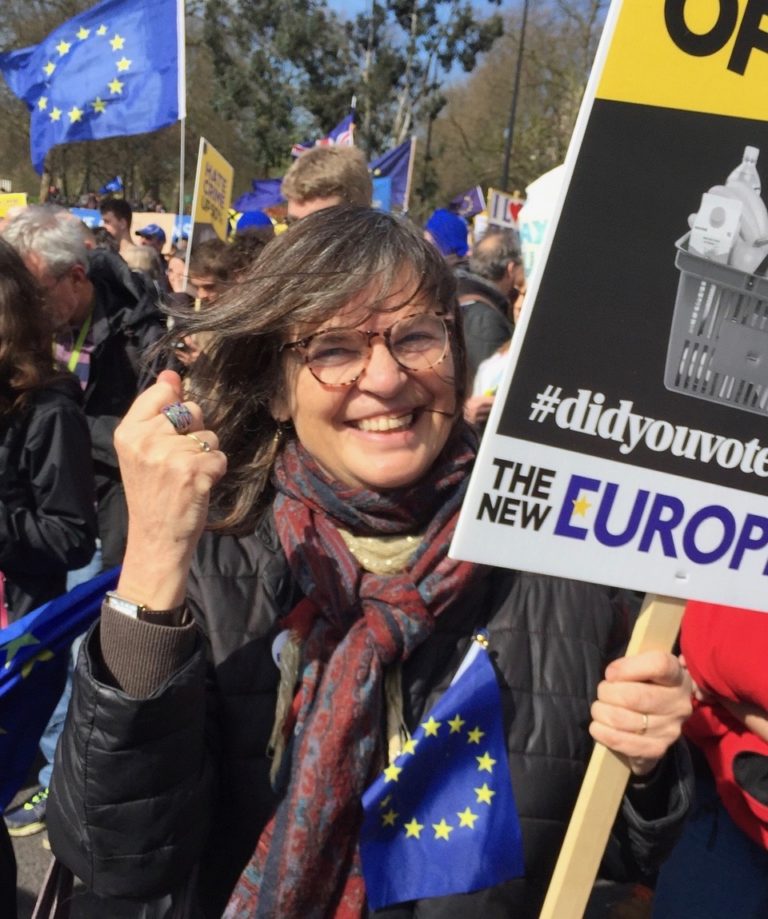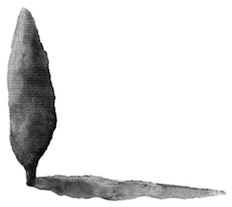Welcome to another interview in the Ampersand series: interviews with writers from all over the world who have a connection to Tuscany.

Poet Alex Josephy offers many insights (and practical advice for writers) in our 13th installment of Ampersand. Her life—which bridges Montalcino and London—“between two cultures, no longer quite at home in either” allows for fertile openings, of self and other. In our next journal issue (June), look forward to original poems from Josephy that will hover around the issue theme, “First Stop, Last Stop.” In the meantime, please visit thesighpress.com and remember we post on Facebook at least three times a week.
Subscribe to our newsletter, where you’ll receive the latest issues, Ampersand interviews and news:

Ampersand 13 – Alex Josephy
Alex lives in London and Italy. Her chapbook Other Blackbirds was published by Cinnamon Press in 2016 and her collection White Roads (poems set in the Val D’Orcia) by Paekakariki Press in 2018. Her poems have won awards such as the McLellan Prize 2014 and the Battered Moons Prize 2013, have been placed in the Hippocrates Prize and in the Troubadour Prize top 20, and have appeared in magazines and anthologies in England and Italy. She was poet in residence at Rainham Hall, Essex, in June 2016 and in Markham Square, London, in 2017. In 2018, she contributed poems about bumblebees to Fifty Bees, an arts and ecology collaboration.
What book (not written by you) comes closest to capturing something about you? What is this aspect?
Julia Blackburn’s Thin Paths comes close. She writes about her time in a mountain village in Liguria. Following faint trails and half-finished conversations, she starts to piece together something of the history of the place and the experiences, past and present, of the people living there. I love her insistence on the importance of quiet, seemingly ordinary people, and of events at the very edges of history. And it’s her ability to welcome uncertainty I admire and find most sympathetic; she’s interested in lives that have gone unrecorded, paths that have almost disappeared, stories that can’t easily be comprehended. Often in the book, she and her companion will set out to look for a remote hillside house or site, only to lose their way. What they find and hold dear seems to me to be the spirit of the place, its reticence and its complexity. It’s as if she stakes a claim for what Keats called “negative capability”—a belief in the value of doubt and even confusion, holding open the possibility that there is always more, just beyond reach. As a child, I was criticised for day-dreaming, but as a poet, day-dreaming is what sustains me. I’ve always discovered the most interesting things by mistake, out of the corner of my eye.
With the world the way it is and the innumerable distractions in daily life, how do you find the time and dedication to pursue something as ephemeral as an idea?
I’d put that the other way round: how on earth do I find the time to deal with daily life when there are ideas and poems to pursue?
Recently, I’ve invented a helpful technique: going on an imaginary retreat, or becoming a fantasy poet-in-residence. You set yourself the task of writing a sequence of poems that spring from whatever context you find yourself in. That could be paid work, or childcare, or creating a vegetable garden, or getting used to a loss, or dealing with a bureaucratic problem, or any experience that occupies your time and that is important to you. You give yourself a week, or a month, or however long feels right, and write something every day, in whatever time is available. You pay yourself a stipend (this could be in kind, a weekly treat or a visit to the gelateria!); you’re going to take the role of poet-in-residence seriously. You try to honour and also to interrogate what’s going on. However much rubbish you write, you don’t give up on your subject matter. Eventually, with luck, some interesting writing starts to coalesce. If all goes well, you can even invite yourself back for a follow-up residency later in the year!
And of course, writing has everything to do with the way the world is, unbearable as that often seems. To make some kind of sense of it all, I try to follow Natalie Goldberg’s advice: “Pick up the pen… keep your hand moving.”
What is the biggest personal obstacle you must overcome in order to write?
The sense that it’s all been said before, and by artists so much more accomplished than I can ever be. At times, in my imagination, they gang up to support the voice of my “inner critic”—the one who wants to squash any new idea before it has a chance to breathe. It helps to envision them more as a shoal. It’s inspiring even to be a tiny hatchling in such good company! On good days I can swim alongside, at least for a while.
It has been said that artists pursue one question in different ways throughout their work. Would you say this is true of your writing? If so, what is your question?
From fins to feathers: I think my poems are a kind of bird-watching. If I stay still and keep my eyes and ears open, questions worth thinking about may alight nearby. Quite often I won’t be able to name them.
Your life bridges two maps, London and Tuscany. In much of your work, Tuscany as place is central, its “objects,” elements, and landscape are both material (building blocks) for your poems and a channel to nonmaterial.
From Meta-Tyrrhenian: I walk down stairs of water/ into degree on degree of blue;/ each joint unlocks, till I’m floating/ through the doors of myself
Can you talk about your approach to place in this sense?
I really like what Billy Collins said on this: “A poem often has two subjects—the starting subject and then the discovered subject.” Yes, White Roads is on one level a celebration of the place where I live—landscape, people, a changing way of life. It’s also an exploration of how it is to live as a straniera in such a traditional cultural setting. As in Meta-Tyrrhenian though, I’m most interested in the reflective and reflexive possibilities of place and culture. It’s often said that an outsider may bring to bear a new perspective on what seems ordinary to those who have always been here; I hope that’s there in some of my poems. But more importantly, I stand between two cultures, no longer quite at home in either. That allows me to reconsider my self; nothing can be taken for granted. In Prendere lucciole per lanterne, for instance, I reflect on the seductive idea of mistaking one thing for another—those flickering lights in the woods, are they fireflies or lanterns? How can I tell, and should I risk following? Do I walk into danger, or will I be tenderly accepted? Metaphor too is a daring walk into the dark.
Tuscany and the idea of Tuscany are so heavily romanticized. How does your work square with this romanticized image?
Ha! That’s a good question. I hope in White Roads I’ve been able to show something of how much more interesting and challenging this place is than the stereotypes suggest.
In a similar way, it’s almost impossible to take original photos in this beautiful, romanticised place, but for instance I love Ed Riddell’s memorable portraits of Montalcino shops and shopkeepers. There’s so much more to Tuscany than sunbaked hilltop towns and rows of cypress trees (my first idea for the book title was “Fango in Montalcino”)!
Since Etruscan times, people have been drawn here for many different reasons, not always in pursuit of wonderful landscapes. I try to look below the surface and want to learn more, and in this respect Tuscany has never stopped amazing me. Last week, walking outside the town walls, I met an old man collecting wood for his woodpile (still a daily routine for many of the older people here). He was in no hurry, and stopped to tell me about his adventures as a deserter from the Italian army in 1944, how he walked back to Montalcino from Palermo, only to find he would have to hide in the woods until the danger of recapture was over.
And I love the fact that much of what happens here is barely of interest to tourists (and not widely advertised)—like the cruel and haunting annual birdsong competition I’ve written about in God’s Love, 2:1 On Favourite. Or the concert given last winter in Montalcino by the marvelous mercury miners’ band from Abbadia San Salvatore. Or the refugees, and others, like the beach vendor in Meta-Tyrrhenian, who hope to make a life here but might well dream not of Tuscan hills but of all they’ve had to leave behind.
What is something few people know about you?
How well I can keep a secret.
If you met your 25-year-old self, what piece of advice might you give?
Don’t worry about all that. Something quite different will happen. Meno male.
Tell us something that recently struck your funny bone or share your favorite joke.
I’ve been watching a BBC TV series, “Back to Life,” scripted by the brilliant Daisy Haggard. This (from memory so not word-for-word) is from “Billy” in the final episode: I think, when you die, you become part of everything… the sea, the pebbles on the beach, the sky… you know everything… that’s why they don’t let dead people take part in pub quizzes.
.

© 2019 THE SIGH PRESS
None of the work published by The Sigh Press may be copied
for purposes other than reviews without the author and artist’s written permission.